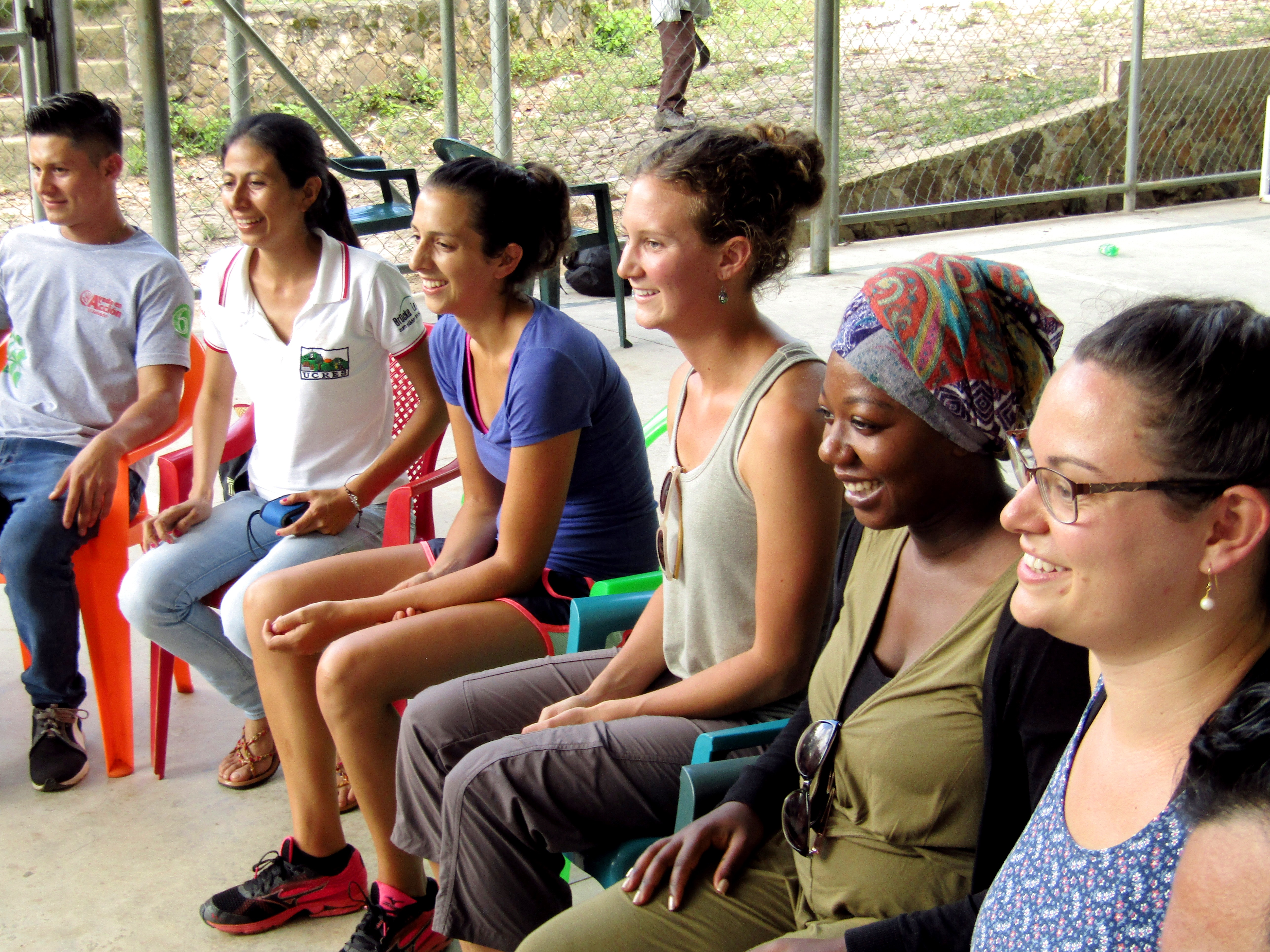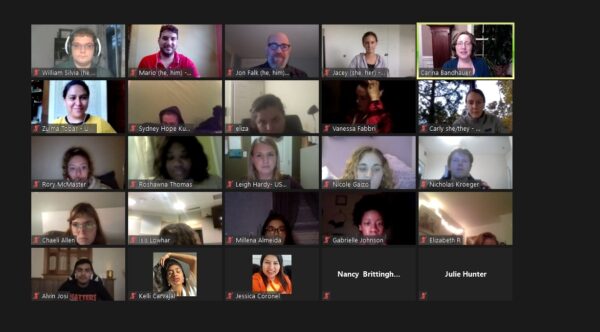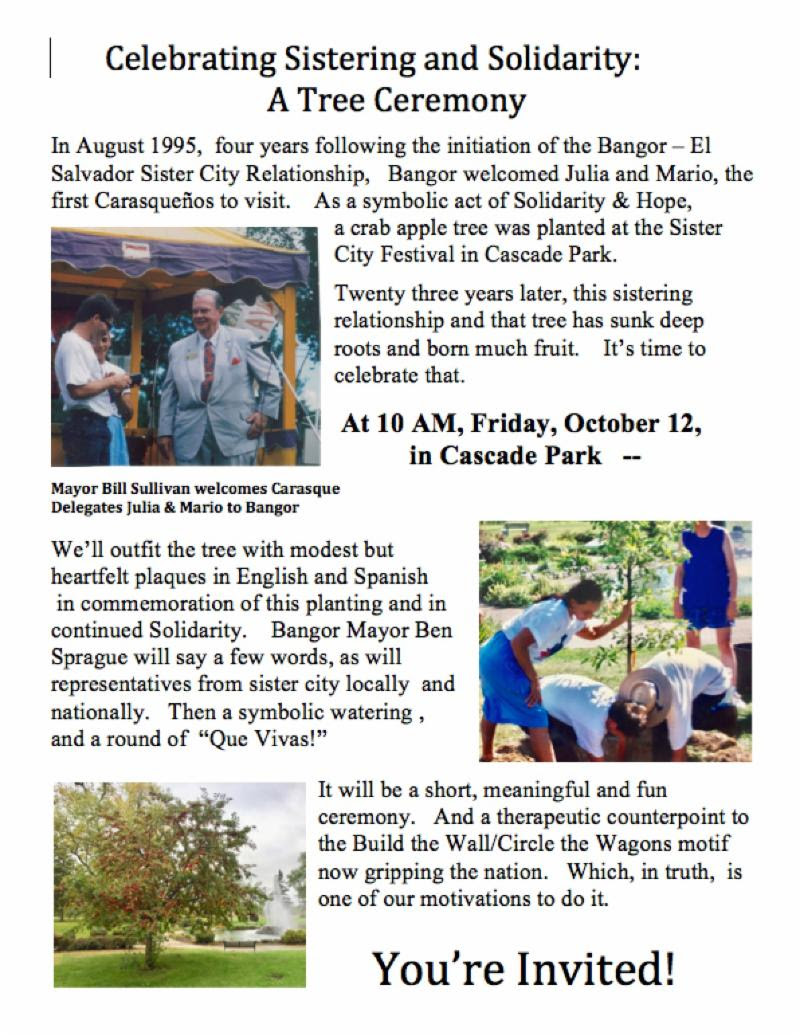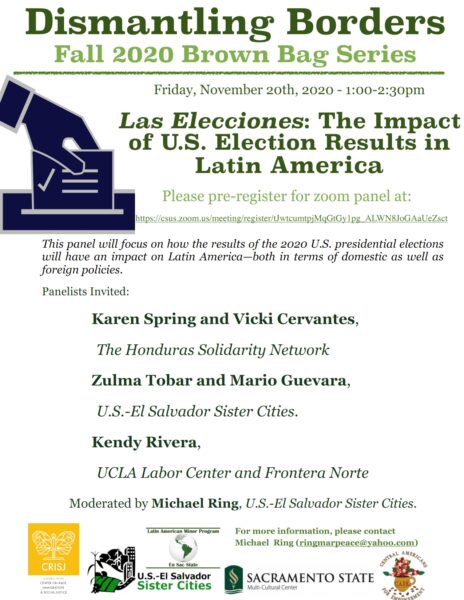Popular Education
In 2022, the popular education group (now merged with the racial justice working group) aims to strengthen the USESSC network, making sure there are more opportunities for people to join our efforts and actively become more inclusive.
Due to the covid-19 pandemic our popular education workshops have been postponed
The foundation of the work of CRIPDES is the permanent organizing structure at the community, regional, and national levels. This involves building up new leaders and empowering people of all backgrounds to find ways to take action to defend what is important to them and their families.
Just as many people in El Salvador see CRIPDES as a school where they can learn about issues that affect them and how to take action, so too do people in the United States look to US-El Salvador Sister Cities as a place to learn and become empowered to create change both in their communities and on a global level. Our committees and National Members are made up of people who are actively organizing in their local area around issues that are important to them, as well as advocating for their sisters and brothers in El Salvador.
We support leadership development and local organizing efforts in the United States and El Salvador with our presence, our participation, our voice, and our fundraising. We believe these groups are crucial in bringing about positive changes, so we use our strategic relationship with CRIPDES to support such groups in El Salvador and to draw inspiration for such groups in the United States.
In 2017, we began developing a series of workshops and delegations aimed at bringing the Salvadoran experience of Popular Education to people interested in organizing in their own local community.
Popular education has been an instrumental tool of resistance for the Salvadoran popular movement, and it has been at the heart of many other people’s movements around the world.
Solidarity runs both ways between USESSC and our brothers and sisters in El Salvador. As we work to build a movement in our country that can fight injustice and racism, we can look South and develop a fruitful exchange for everyone involved.
Interested in attending one of our workshops? Read some of our frequently asked questions below.
Summer Pop Ed School FAQs
What is popular education?
Popular education – experiential education that lets “ordinary people” come together, understand their situations, and build the power to deal with fundamental challenges – is practiced around the world. It is participatory, dynamic, and fun. It has been developed to a very high level in El Salvador, where it is the “secret sauce” underpinning the extraordinary power of the Salvadoran popular movement. We can use some of that sauce here in the U.S. right now!
Who is US-El Salvador Sister Cities?
We are a 30-year old network of committees, sistered with repopulated rural communities in El Salvador. At the national level we partner with CRIPDES, the leading organization of the Salvadoran rural popular movement.
Why is the workshop being held in El Salvador?
Having the workshop in El Salvador lets us not only work together as a group, but also meet with popular educators and community members there, be inspired by the ways they are educating, organizing and developing leaders in their struggle for justice, and think together about how we can translate this practice into our own situations in the U.S.
Where will we be in El Salvador?
We will stay at a guest house in San Salvador the night we arrive and the night before we leave.The rest of the time we will be staying at a retreat center in Arcatao, a town in the Salvadoran mountains in Chalatenango department with a long history of organizing.
Who should attend this workshop?
Anyone who is involved (or interested in becoming involved) in grassroots organizing work will benefit from this workshop. We encourage both young activists and more experienced activists looking to sharpen their skills to apply.
Do I need to be able to speak Spanish?
No. Interpretation will be available, so Spanish proficiency is not required. We expect to have a mix of Spanish language abilities in our group, from no Spanish at all to native speakers.
How much will it cost?
Estimated cost is $850, which includes all in-country transportation, lodging, meals, interpretation, and training materials (everything except incidental expenses, e.g. for gifts to bring home, extra snacks, etc.). Participants are responsible for arranging and paying for their own travel to and from El Salvador.
How do I apply to be part of the workshop?
The application form is online at https://forms.gle/1WKpWgz3tUVUeJ9L7.
Will scholarships be available?
We will have limited scholarship funds available. All participants, even those receiving scholarships, will need to provide at least $250 of their own funding towards the workshop cost. You can request a scholarship in the application form.
How do participants raise their own funds?
Past participants have found creative ways to cover their airfare and additional tuition costs. Some examples of this include reaching out to community organizations and universities, asking family and friends for support (i.e. Go Fund Me), and starting to save a little of their income each week to put towards the trip. We have a letter template you are welcome to use to raise funds, and we are happy to brainstorm other options with you as well.
Is it safe to visit El Salvador?
El Salvador has had a high level of violence for many years. There are some parts of the country that are quite dangerous, particularly for Salvadorans. The rural organized communities that we will travel to are very safe, much like most of the rural U.S. USSESC has never had a serious problem in our 30-year history, but we take precautions such as traveling in groups and avoiding certain areas. The U.S. State Department has a Level 2 Travel Advisory (“Exercise increased caution”) for El Salvador. The same level advisory is currently given to most of the countries in Western Europe.
Where can I find additional information about USSESC and traveling in El Salvador?
The best place to start is USSESC’s website at https://www.elsalvadorsolidarity.org.
Upon your acceptance to the school, we will send you a handbook that includes reading lists, packing lists, and helpful travel tips for before, during, and after your stay.
Interested? Have questions, concerns? Contact:
Jacey Anderson
jacey.sistercities@gmail.com
Jon Falk
jonf@lljf.net
READ ABOUT OUR ONLINE POPULAR EDUCATION WORKSHOPS BELOW:




